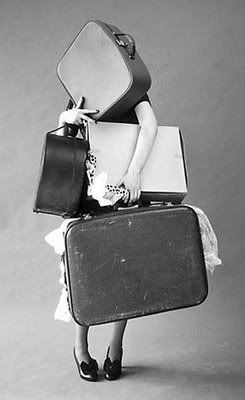How to Cure Common Travel Worries
Are you someone who would really love to spend time traveling, seeing new places having new experiences? But do you also find yourself freaking out when you start thinking about planning such a trip? Don’t worry, this is fairly common. Many people suffer from what is referred to as ‘travel phobia’. Maybe you are not afraid of flying but you are afraid of all the things that can go wrong while flying. You have heard the horror stories so you hesitate to book that trip and find yourself missing out on some great experiences.
Well, don’t let these phobias get you down, there is a cure. These suggestions by Rick Seaney explain how you can alleviate some of the common travel phobias. Don’t let anxiety keep you from enjoying life, try these tips and have yourself a stress-free vacation!
1. The Getting Started Phobia
You want to travel but don’t know where to begin. Put pen to paper or fingers to keyboard and make a few lists regarding where you want to go and what you want to see.Plan ahead: Go online and Google “official tourism site for [destination]”. Now, the fun part: Pick out attractions or activities you absolutely must see. Then, where possible, book tickets (or at least make reservations). Do it quickly because popular activities can fill up quickly (like a White House tour, for example). Finally, print out receipts and/or reservations (yes, these can live on your phone but paper copies are always good).
Don’t over-plan: Leave some empty space on your day-to-day trip calendar because sometimes you just need a break – time to do nothing more strenuous that bask on that beach in Florida or wander the Champs-Élysées of Paris.
2. Security Phobia
We all get this to some extent but security is here to stay. The good news is with PreCheck you’ll get a faster experience and a five year membership only costs $85 (and personally I think the shorter lines are worth $17 a year). If you travel much internationally, Global Entry makes returns to the U.S. faster and easier and it includes PreCheck.
3. Packing and Baggage Phobia
The trick is to pack light and pack early. With just a few exceptions, carry-ons are free while the vast majority of airlines charge $50 round-trip for a checked-bag. Packing only what you need as opposed to what you might want to bring is key and packing light is easy with the roll-your-clothes method.
Another tip: Pack a day or two ahead of time and place a list of last-minute items to add to the bag on top of it.
4. No WiFi Phobia
This is a vacation, so ease off on the email and text messages. Yes, we know you’re important but if the office really needs you, they’ll call. Free yourself so you can actually enjoy the vacation you’ve worked so hard for.
5. Fear of Glitches Phobia
Here’s another instance where ‘letting go’ is sometimes the best thing to do. Yes, a flight might be delayed but so what? Stuff happens and you can’t fix everything so just relax. If stuck in an airport, here’s where electronics will come in handy so fire them up (you packed the charger cord, right?) and find out what’s happening on Game of Thrones. Your plane will take off eventually.
One more thing: Be polite in all your dealings with airline representatives and it’ll come back to you, or at least that’s what a rep told me long ago: “Who would you rather help, Mr. Jerk or Mr. Nice Guy?”
So don’t let these little fears get in your way. The reward of travel far outweighs the risk and most of these things are minor when you look at the big picture. Happy travels!





